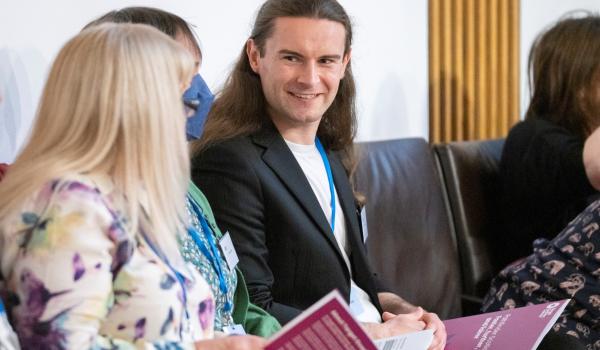Led by Professor Charlie Gourley and Dr Robb Hollis, this project set out to understand more about the biology of low grade serous ovarian cancer in order to find new treatment options.
| Location | University of Edinburgh |
| Duration | April 2019 to October 2022 |
| Funding awarded | £190,490 |
| Status | Completed |
Why was this research needed?
Low-grade serous ovarian cancer (LGSOC) affects approximately 700 women in the UK every year, the majority of which are in their 40s. As a rarer form of the disease, less is known about LGSOC and there are fewer treatment options available.
This project looked to build on the work of a landmark clinical trial of a drug called trametinib. Although the results from the trial were a huge step forward for research into low grade serous ovarian cancer, it was clear that there was still significant variation in the outcomes. Some people on the trial responded well to the trametinib, while others did not.
Professor Gourley’s team set out to analyse 250 samples from the clinical trial to identify how they differed, and how this then affected their response to treatment, in the hope that understanding the genetic changes that contribute to this type of ovarian cancer would help create more personalised treatment options in the future.
How did it progress?
The team found three subgroups of recurrent LGSOC based around changes, called mutations, to the MAPK signalling pathway. This pathway takes signals from outside of the cell into the nucleus. Researchers found that different mutations meant patients either responded well or didn't respond to trametinib, as well as whether they were more or less likely to experience recurrence.
This knowledge adds to the overall picture of the biology of this form of ovarian cancer and can now be built on to hopefully identify new treatments.
Following on from this, the second aim of the project was to find potential new treatment options for recurrent LGSOC. The team screened a library of 1,840 drug molecules in the lab to identify potential drugs that could be taken forward into new clinical trials.
This work led to identifying 16 possible new drugs that, after being tested further in clinical trials, may in time be licenced as new treatments for anyone living with LGSOC.
What happens next?
These potential new drugs are exciting as there are currently no specific treatment options for those affected by recurrent LGSOC. The team are running more tests to decide which ones should be taken forward into clinical trials. This includes testing them in 3D tumour models.
The project team will then seek funding for new trials in order to develop these findings further – with the ultimate goal to have multiple treatment options available for LGSOC in the future.



